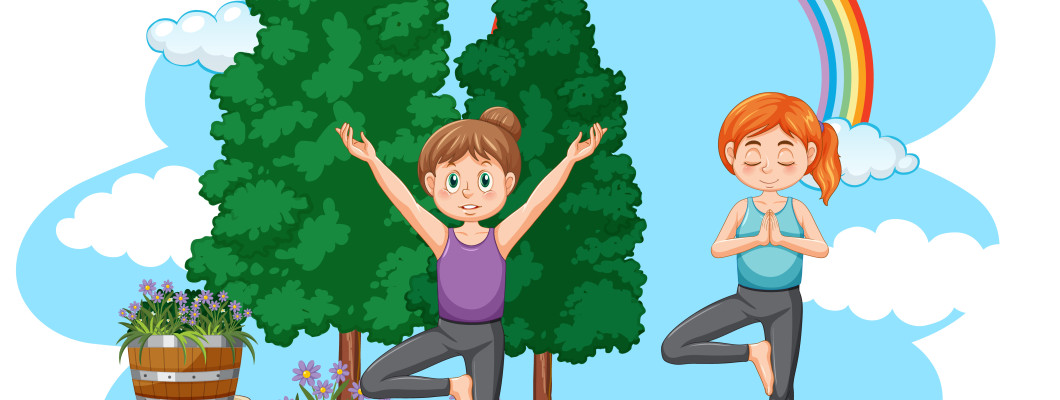
Balance and Self-Care: Essential Life Skills for Children
In today’s fast-paced world, balance and self-care are often overlooked skills—yet they are essential for a happy and fulfilling life. When children are taught to prioritize their well-being from an early age, they grow into resilient, mindful individuals who can navigate life’s challenges with ease.
Self-care is not just about pampering; it’s about cultivating a lifestyle that nourishes the mind, body, and soul. Balance, on the other hand, helps children manage responsibilities, emotions, and relationships without feeling overwhelmed.
So, how can we help children develop these vital habits? Let’s explore some simple yet powerful practices that foster balance and self-care from childhood.
Encouraging a Mindful Morning Routine
How a child starts the day sets the tone for everything that follows. A mindful morning routine helps them feel grounded and focused.
- Teach them to wake up with gratitude by saying a simple “Thank you for this new day.”
- Encourage stretching or a few deep breaths before jumping into activities.
- Keep mornings unhurried—rushing creates stress and imbalance.
This small shift in how children begin their day can cultivate mindfulness and emotional stability.
Teaching the Power of Saying ‘No’
Children often feel the pressure to please everyone—whether it’s friends, teachers, or family members. But learning to set boundaries is a crucial life skill.
- Teach them that saying “no” is okay when something doesn’t feel right.
- Help them understand that their time and energy are valuable.
- Encourage them to listen to their inner voice rather than external expectations.
By mastering this skill early, they will grow into confident individuals who don’t overextend themselves or feel guilty for prioritizing their needs.
Creating a Restorative Bedtime Ritual
Quality sleep is one of the most important aspects of self-care. A well-structured bedtime routine helps children unwind and prepare for deep, restful sleep.
- Reduce screen time at least 30 minutes before bed.
- Encourage mindful talks—reflect on the day’s experiences and emotions.
- Introduce bedtime shlokas or positive affirmations for a sense of peace.
A soothing nighttime ritual ensures children wake up refreshed and ready for the day ahead.
Fostering a Healthy Relationship with Food
Food is fuel for both the body and mind. A balanced diet teaches children the importance of self-care through nourishment.
- Involve them in meal preparation to build awareness about healthy choices.
- Teach them to eat mindfully—chewing slowly, savoring flavors, and appreciating food.
- Emphasize the importance of hydration and consuming seasonal fruits and vegetables.
When children connect with their food consciously, they develop lifelong healthy eating habits.
Cultivating Movement and Stillness
Balance isn’t just about being active; it’s also about learning to pause. A mix of movement and stillness is essential for holistic well-being.
- Encourage outdoor play, yoga, or dance to keep the body active.
- Introduce meditation or silent sitting for mental relaxation.
- Show them that rest is as important as productivity.
When children understand that both activity and stillness are essential, they become naturally balanced individuals.
Nurturing Emotional Awareness
Emotional well-being is a crucial part of self-care. When children are taught to recognize and express their emotions in a healthy way, they develop resilience and self-understanding.
- Encourage open conversations about feelings.
- Teach them that all emotions—happiness, anger, sadness—are valid.
- Guide them in managing stress through breathing exercises and journaling.
When children learn emotional regulation, they become more adaptable and confident in handling life’s ups and downs.
Instilling the Habit of Reflection
Taking time to reflect on daily experiences is an important self-care habit. Reflection fosters self-awareness, gratitude, and personal growth.
- Ask them about their favorite part of the day.
- Encourage keeping a simple gratitude journal.
- Teach them to celebrate small wins rather than focus only on big achievements.
Self-reflection helps children develop an intuitive understanding of what brings them joy and balance.
Final Thoughts
Balance and self-care are not luxuries; they are essential life skills that children must develop early on. By integrating these small yet meaningful habits into daily life, we help children build a strong foundation for physical, emotional, and mental well-being.
As they grow, these practices will become second nature, shaping them into individuals who prioritize their happiness, maintain equilibrium, and embrace life with wisdom and ease.
Let’s empower the next generation to care for themselves with the same love and kindness they show to the world.
